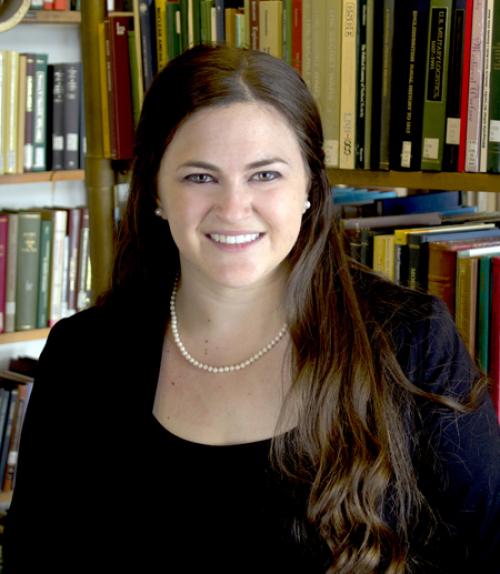Liana Brent, a PhD candidate in Classics, has been honored with the Andrew W. Mellon Foundation and the Samuel H. Kress Foundation Pre-Doctoral Rome Prize at the American Academy in Rome for her project, “Corporeal Connections: Tomb Disturbance, Reuse, and Violation in Roman Italy.”
The American Academy in Rome, founded in 1894, is the oldest American overseas center for independent study and advanced research in the arts and humanities. The Rome Prize supports advanced independent work in the arts and humanities and is given to 31 artists and scholars, who receive a stipend, workspace and room and board.
“I am looking forward to living in an academic community, where the unique confluence of people, ideas and the city of Rome itself will have a lifelong impact on me,” Brent said. “During the two years in which I will be a resident at the American Academy in Rome, I will have privileged access to museums and exhibitions, archaeological sites, libraries and archives, which will enhance my research and prompt me to ask new questions about the physical remains of the past.”
Brent’s research interests include Roman funerary archaeology, archaeologies of the body, looting and the antiquities trade. Her doctoral dissertation addresses the archaeological, legal, religious and social aspects of tomb violation in Roman Italy.
“With her dissertation on post-depositional skeletal manipulations and corporeal connections, Liana contributes to the nascent field of an archaeology of the body and the senses in the Roman world,” said Professor Eric Rebillard, director of graduate studies in Classics. “Her Rome Prize intervenes at a crucial time in her career and rewards her cutting-edge research.”
In 2012, Brent completed her master’s in Classics at McMaster University in Canada, with a thesis called, “Artifacts and Burial Practices in the Vagnari Cemetery.” She has excavated at several Etruscan and Roman sites in the regions of Puglia, Umbria and Campania in Italy. This includes working in the village and the Roman cemetery at the Vagnari Project in southeast Italy, the Coriglia Excavation Project near Orvieto and the Pompeii Archaeological Research Project at Porta Stabia. She has participated in intensive summer programs at the American Academy in Rome, the American School of Classical Studies at Athens, and the École française de Rome.
“My doctoral research explores Roman burial practices that involved post-depositional activities, including disturbance, reuse and violation,” she said. “By investigating the state of human remains and the time between depositions in reopened and reused graves, I explore how the addition of individuals and the manipulation of human skeletal elements created inter-generational corporeal connections between the deceased and the living.”
Yvette Lisa Ndlovu is a communications assistant for the College of Arts & Sciences.




